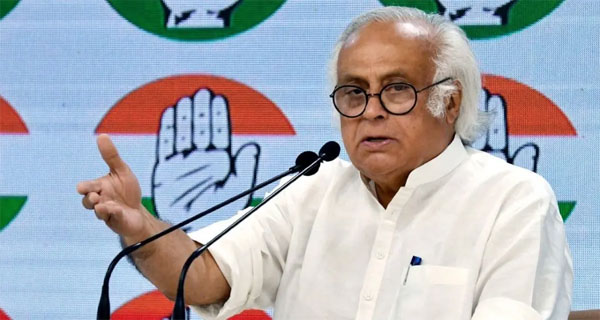Daijiworld Media Network - New Delhi
New Delhi, Sep 21: Just hours after Prime Minister Narendra Modi addressed the nation to hail what he called major reforms to India’s Goods and Services Tax (GST) regime, the Congress party launched a scathing critique, dismissing the changes as “inadequate” and accusing the Prime Minister of taking undue credit for a decision made collectively by the GST Council — a constitutionally mandated body.
Jairam Ramesh, Congress general secretary in charge of Communications, took to social media platform X to counter the Prime Minister’s claims, stating, “Today, the Prime Minister sought to take exclusive credit for decisions made by the GST Council — a body meant to reflect federal consensus, not individual triumph.”

Ramesh reiterated Congress’s longstanding criticism of the GST system, calling it a “Growth Suppressing Tax” riddled with systemic flaws: “multiple tax slabs, exorbitant rates on essential items, rampant evasion, expensive compliance requirements, and a broken duty structure.”
He pointed out that the Congress has been calling for a complete overhaul—what the party brands “GST 2.0”—since the tax’s rollout in 2017. This vision was reaffirmed in its 2024 Lok Sabha election manifesto, the Nyay Patra.
Detailing the gaps in the recent reforms, Ramesh emphasized the continuing struggles of Micro, Small, and Medium Enterprises (MSMEs), which still face bureaucratic red tape and rigid rules around inter-state trade. He also highlighted unresolved concerns in key sectors such as textiles, tourism, handicrafts, exports, and agricultural inputs.
Further, he urged the government to incentivize states to bring crucial sectors like electricity, petroleum, alcohol, and real estate under the GST umbrella to ensure a more comprehensive tax framework.
Ramesh didn’t mince words about what he saw as the government’s failure to extend the GST compensation period for states, calling it a violation of the spirit of cooperative federalism. “This delay of 8 years in reform begs the question: will these changes actually trigger the private investment needed to accelerate GDP growth?” he asked.
Taking a broader swipe, he linked economic stagnation to poor policymaking, pointing out that India’s trade deficit with China has more than doubled in the past five years, exceeding $100 billion. He warned that a climate of fear and monopolization is driving Indian businesses to relocate overseas.
His remarks followed PM Modi’s festive announcement of a “GST Bachhat Utsav” to coincide with the Navratri celebrations — a move the Prime Minister claimed would deliver major benefits to consumers and spur economic momentum. Congress, however, appears unconvinced.